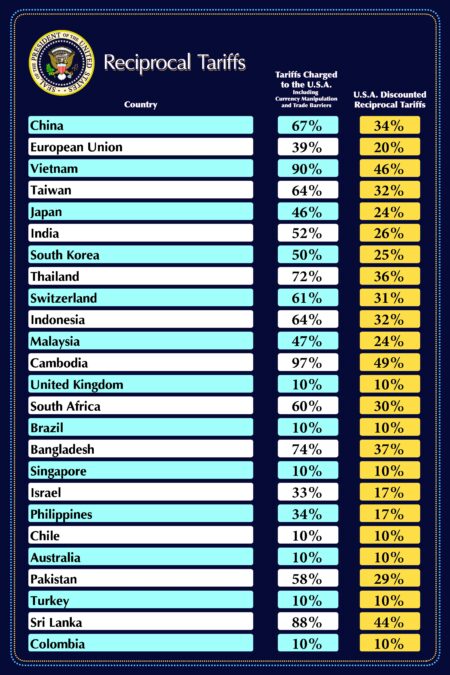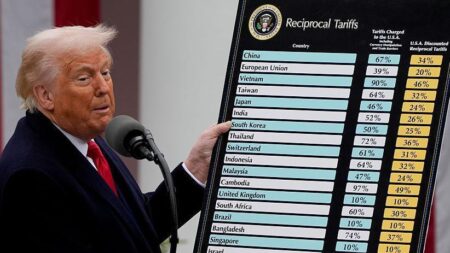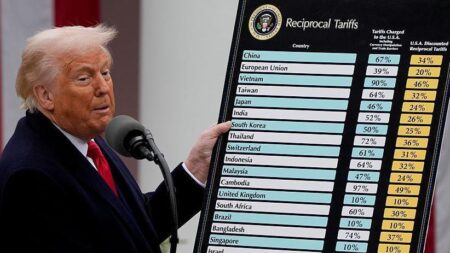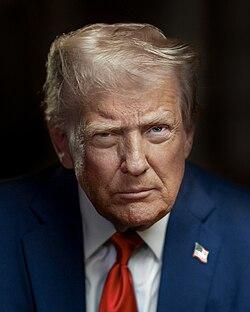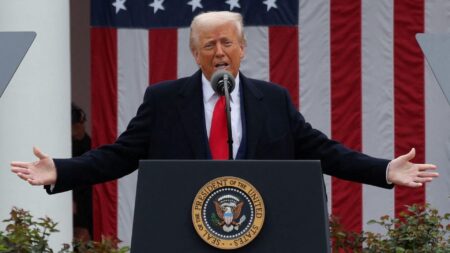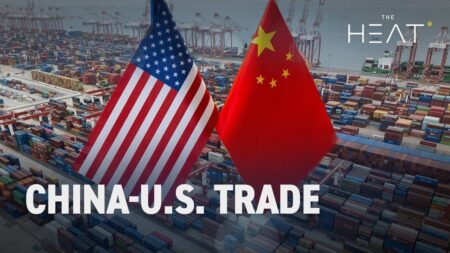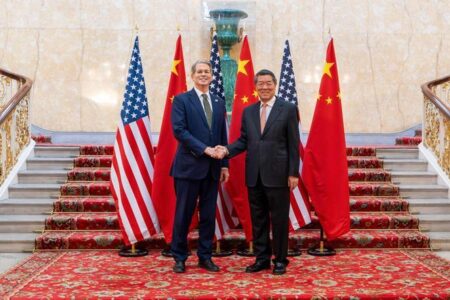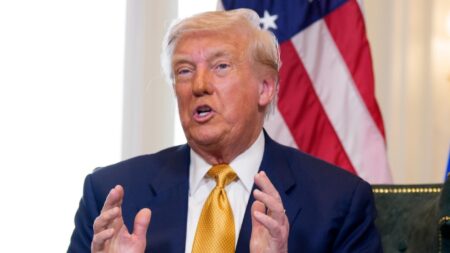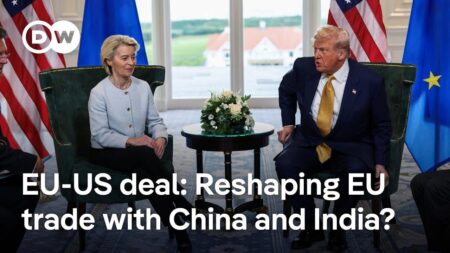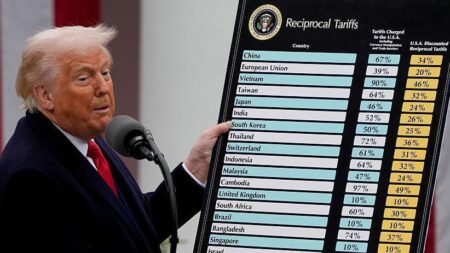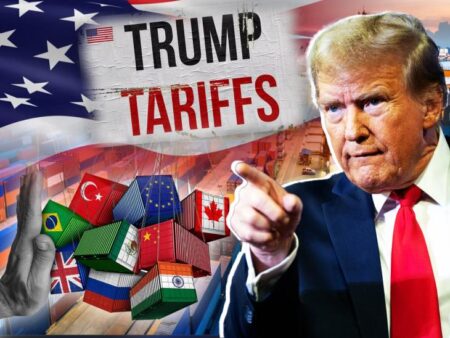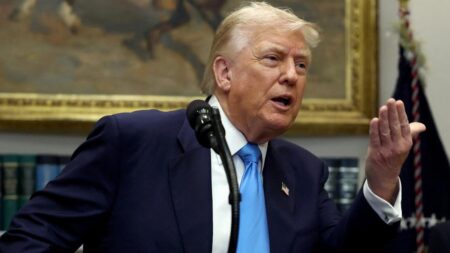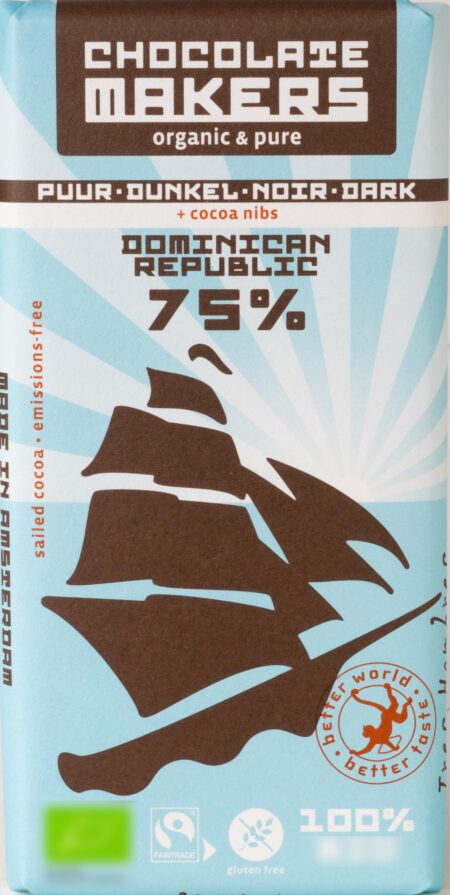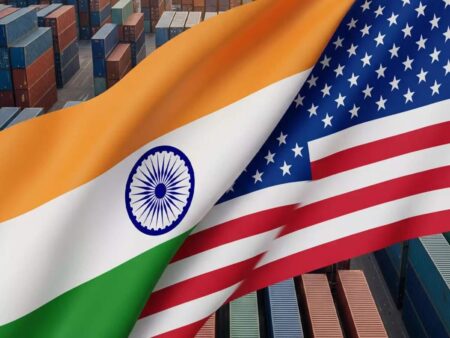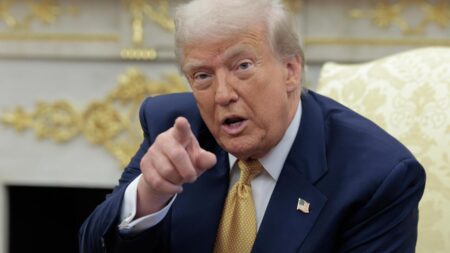Trump ramps up trade tensions with fresh tariffs on Canada and unveils unexpected trade moves. Stay tuned for live updates on the unfolding impact and worldwide reactions!
Browsing: international trade
The White House has unveiled bold new plans to revamp reciprocal tariff rates, aiming to enhance trade fairness and empower domestic industries. Stay tuned for exciting updates on the sectors affected and the timeline for implementation!
Canada’s Finance Minister Mark Carney expressed deep disappointment over U.S. President Donald Trump’s tariffs, warning they could seriously harm North American trade relationships and drag down economic growth, The Wall Street Journal reports
President Trump hits back with new tariffs on imports from India, Brazil, and South Korea as a critical deadline approaches, ramping up trade tensions and raising alarms about the global economy. Get the full story on nbcnews.com
President Trump stuns the market with a staggering 50% tariff on Brazilian imports, accusing them of harming U.S. businesses. This bold action intensifies trade tensions and highlights his fierce dedication to protecting American industries
Former President Donald Trump announced that the US and India are deep in negotiations, despite the looming threat of a 25% US tariff. These pivotal talks aim to resolve trade disputes and boost the economic partnership between the two countries
The U.S. has dramatically increased tariffs on Canadian goods from 25% to 35%, highlighting urgent concerns over fentanyl trafficking, Reuters reports. This bold step marks a significant escalation in trade tensions between the two neighboring countries
The U.S. has raised alarms over Brazil’s popular payments platform Pix, highlighting significant trade and regulatory hurdles. This move shines a spotlight on escalating tensions in the fast-evolving realm of digital finance as global payment networks race to grow
The US and China have teamed up to extend the tariff pause deadline during ongoing trade talks in Stockholm, aiming to ease tensions and accelerate progress, AP News reports
Trump’s trade deal with the EU paves the way to cut tariffs and turbocharge exports, promising lower prices on everyday items for American consumers. Experts weigh in on how this could impact wallets nationwide
The US-EU trade deal, valued at over $180 billion, eclipses the UK-US agreement in both scale and influence. Key sectors like automotive and agriculture reap the rewards of lowered tariffs, highlighting the distinct priorities driving transatlantic commerce
No tariff pause emerged from the latest US-China trade talks, as tensions continue to simmer. Meanwhile, President Trump is preparing to impose new tariffs of 20-25% on Indian imports, intensifying the ongoing trade conflicts
Former U.S. President Donald Trump has slammed Brazil with hefty tariffs and sanctions, striking back fiercely at the legal troubles surrounding former leader Jair Bolsonaro. This bold action has further escalated the growing tensions between the two nations, reports France 24
India voices strong concern as the US imposes a hefty 25% tariff on crucial exports, sparking fierce criticism of Trump’s trade policies. This bold action threatens to strain bilateral ties and disrupt economic cooperation, intensifying urgent demands for meaningful dialogue
Thursday Briefing: The New York Times uncovers President Trump’s aggressive tariffs on Brazilian imports, escalating trade tensions and raising alarms over potentially severe economic fallout for both nations
Trump’s tariffs on imported goods have given Canadian and Mexican chocolate makers a delicious advantage over their US competitors, Reuters reports, as soaring costs leave American producers struggling to keep up in the global market
A Trump administration official has highlighted that more negotiations are crucial before finalizing the India-US trade deal. With no agreement in sight yet, discussions are ongoing as both parties strive to resolve key challenges
Exclusive: In a surprising show of unity, US Democrats and Republicans are teaming up to draft bipartisan bills designed to intensify pressure on China. This move is energized by Trump’s renewed push for tougher trade measures, Reuters reports. It marks a rare moment of consensus in Washington’s often divided approach to China policy
Germany’s Finance Minister Friedrich Merz voiced doubts about a quick breakthrough in EU-US trade negotiations and warned that without stronger transatlantic trade relations, the German economy could encounter significant hurdles, Reuters reports
US tariffs imposed during the Trump era now cast a shadow over Brazil’s export-driven economy, endangering key industries like steel and agriculture. Experts warn that these measures could ignite trade disputes and stall growth in Latin America’s largest market

